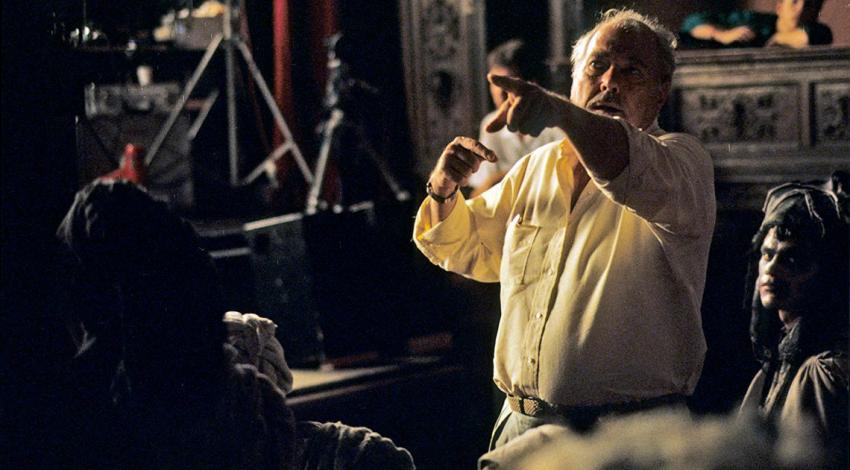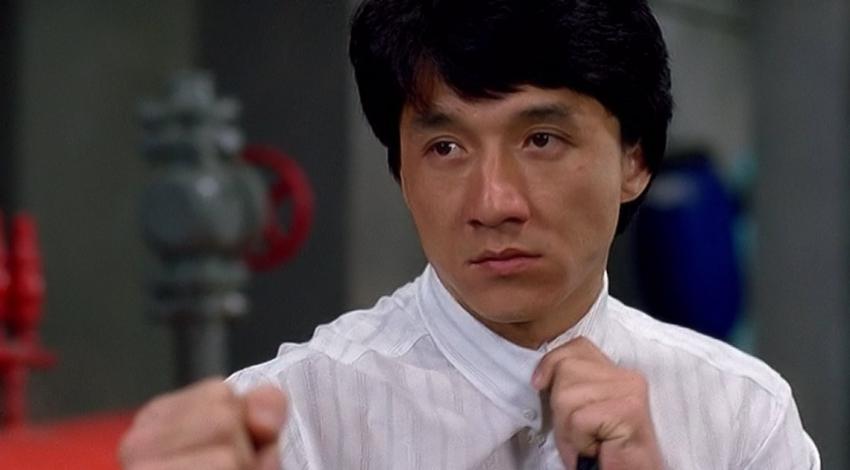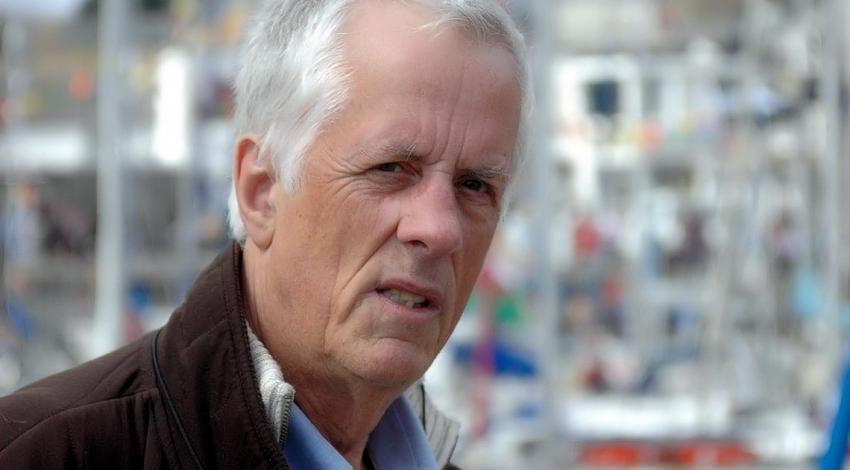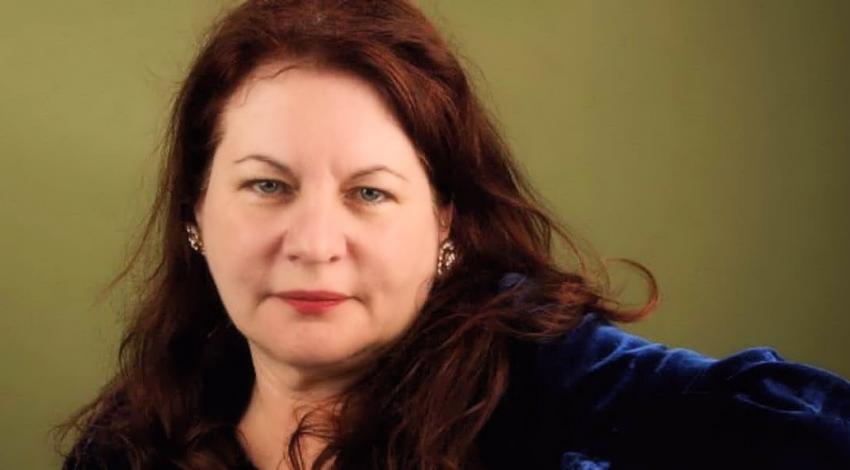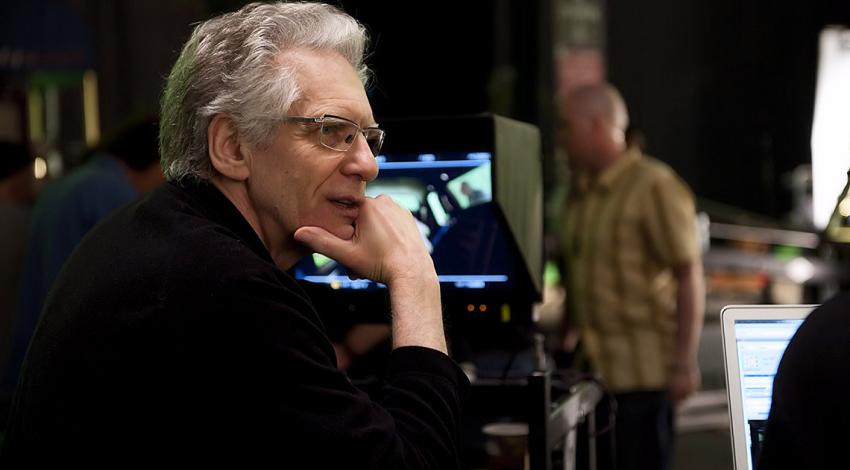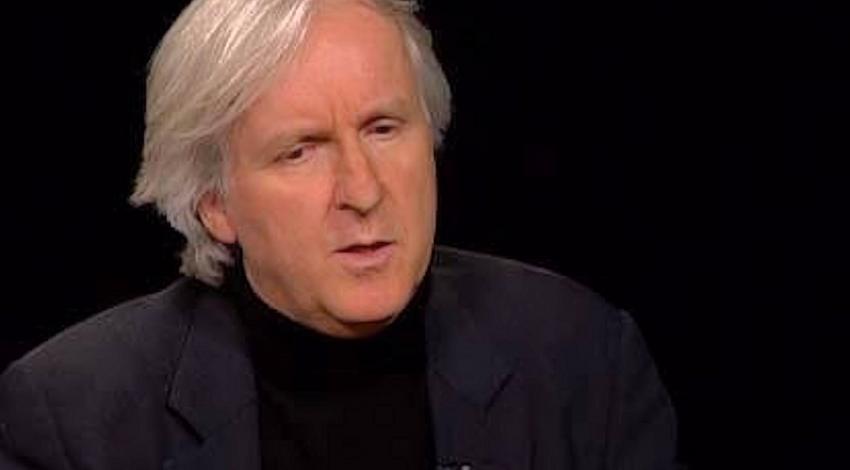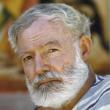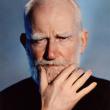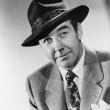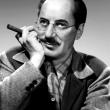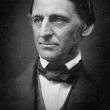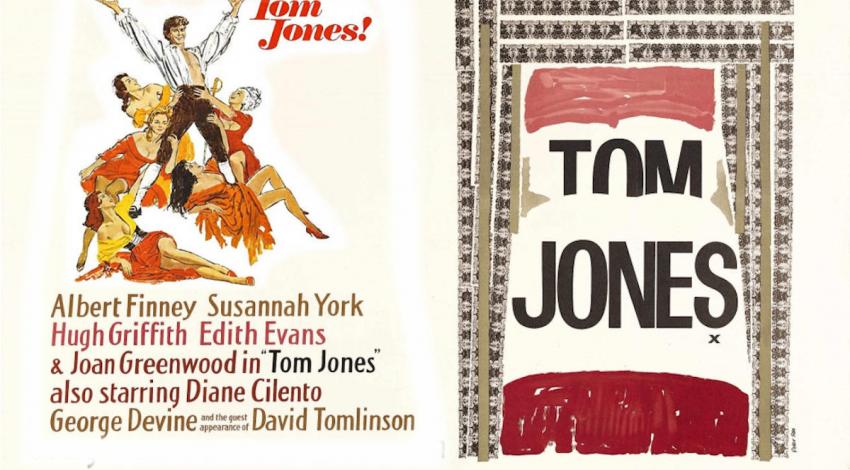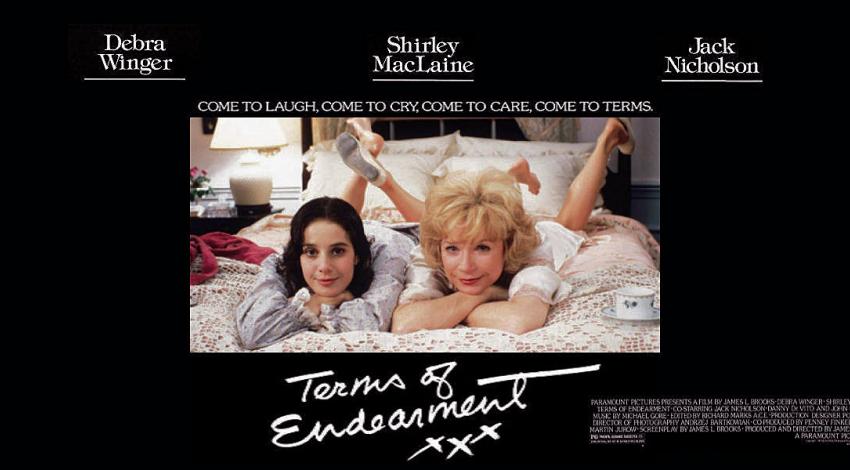Bernardo Bertolucci: Face to Face
Face To Face is a BBC television series originally broadcast between 1959 and 1962, created and produced by Hugh Burnett, which ran for 35 episodes. The series was revived in 1989 with Jeremy Isaacs as the interviewer. This version ran until 1998.
The following is a transcript of that interview which last aired on BBC4 on Sat 9 Oct 2010.
Editor's note: Sadly, we must report the passing of Bernardo Bertolucci on Monday, November 26, 2018 in Rome at the age of 77.
Bernardo Bertolucci | Director *
Bernardo Bertolucci, you have made many remarkable films. Your last film, "The Last Emperor" had a great public triumph in Hollywood. Were you happy about all those Oscars?
quote-leftYou know for a European director the Oscar is a kind of very remote ceremony. It is something that it doesn't belong to us. Of course, the moment you get nine of it, the things change; so I felt suddenly sucked into a world, a universe, which is not my universe, which is a kind of legendary Hollywood universe. What it was interesting and reassuring is that the Hollywood community in general is very, very, let's say, chauvinistic. I don't think there is a record of a foreign movie- because The Last Emperor is an independent, European movie- that has this kind of success. So it was curious why; and people executive of the major companies came to congratulate me, and they told me in general more or less the same thing. The Last Emperor gave them the feeling of cinema as... They said this movie will make us think of the reason why we decided to be in movie business.
Did they see the same things in the movie as you saw in it? Is it a political movie?
quote-leftYeah, but you know what everybody sees in the movie is such a private emotion. I mean in the cinema I think that when you go to see a movie- if we see it in the proper place which is in the movie theatre, and not the TV- we enter in a kind of a special light. There is this amniotic darkness, and we are going all together to dream the same dream. And this is the great thing of cinema; it is something that happens in a community, we are all together. What they in Hollywood, they have seen, I think they have seen cinema. You say it is a political movie: of course it's a political and a historical movie, but I think more or less every movie can be called political. Also, movies which are not on politics; because I think that if a director decides to accept or to refuse the interpretation of reality, the society in which he lives, gives to him, he already does a political gesture. That's why I think that more or less movies are political.
If we sit in the cinema do we all dream the same dream, as you have just said; or do we all dream different dreams?
quote-leftWe start dreaming the same dream because there is... Let's think that the movie is projected not only by the projector which is behind everybody; but is projected also by our eyes. So we participate in our personal private way to this kind of ballet of ghosts that we have on the screen.
You described Hollywood as the big nipple. What did you suck from it?
quote-leftNo, that was when they gave me, I think, best director or best picture; I don't remember, the best director Oscar. I really wasn't waiting also for that because we had already 7 or 8 Oscars and so I had a bit to improvise something to say. And so I said that if New York is the Big Apple, through me tonight, Los Angeles it is the big Nipple! So there was a moment in the audience of a bit, not shock, but amazed. And then the day after I remember I was driving in Sunset Boulevard and the radio, there was the disc jockey saying "and now music from the Big Nipple..." And so they adopted it as... I just meant that night these nine Oscars were like a big, big breast feeding all of us. It was a joke. Sometimes from Hollywood is a very dry nipple; that time it was big and very generous.
Tell me about your mother, who was she?
quote-leftMy mother is the most mysterious person of my life. If you know my movies, there is an obsession in my movies which is my father. In all my movies there is a some kind of an Oedipal conflict; the mother is always a kind of remote, hidden figure. My mother was born in Australia, in Sydney, and that is why I think I have a quarter of my blood which is Australian Irish. My grandmother was called Mulligan and I am very proud of it. I say always I am Italian/Irish. And she came to Italy and her father was Italian. She came to Italy when she was very little in fact, six. She is a kind of silent reassuring muse for my father, who was a very good Italian poet; always being next to him, with the candle shade, but of course with a great power with him. They were the most amazing couple; they never split even for five minutes. In some ways, it was impossible model; impossible to imitate, impossible to compete with, because I never seen a case of symbiosis, of total osmosis.
Were you loved and protected then in your childhood?
quote-leftYeah, I was even over loved, but in a very strange way. You know I think that when there is a lack of affection in somebody, it doesn't have anything to do with what the reality, the objective facts; how did it go when you were a little baby. It is something that is within you which has origins I think even more distant. My childhood was in the country, next to Parma, in fact between the City of Parma - which was a provincial beautiful city- and the hills in a kind of sweet landscape; a plain. That is why in many movies I went back to this places, and my father as I said is a poet, and I learn everything there; I learn everything in that place, I learn everything from him.
He took you out of the village into the city to see movies. Is that right?
quote-leftYeah, yeah he was taking me when I was 8, 9, 10 to see all the opening movies. Because he was then a movie critic of the Gazetta di Parma - the Parma Gazette- and that's maybe why everything started. In fact, I began writing poems because of course I wanted to imitate my father; like every child wants to imitate his father or mother. And the certain moment, at the age of 15, I felt terribly uncomfortable; I felt poetry doesn't belong to me, it's not mine. So I was looking for something which was totally mine. But I am very grateful...
Yours and not his.
quote-leftYeah, mine and not his.
So you made a film.
quote-leftI made a first film, when I was 16 and of course it was in 16 mm. It was a little home movie, but with a story, a fiction. I knew I would be a director; I don't know how. But I was so incredibly sure with the arrogance you can have only when you are less than 20. That's why my first movie was made when I was 21, which is quite, you know; I am a quite young man. I am not too old; but as a director I am very old because I started in 1962, so I have been a director for 27 years.
You made a another short movie about the killing of a pig. Is that right?
quote-leftYeah, yeah that is my movie number two.
Why?
quote-leftBecause I was looking out around me; around the house where we are living, and I was trying to tell the emotion of the things that were going on around that time. The killing of the pig is one of the most dramatic and exciting moments of feast in the countryside, and you know they don't throw away anything in the pig. You know everything becomes something to eat, or the hair for brushes; you use everything. That was fascinating. I still love pigs very much. When I see a pig, I become very, very moved.
What were the politics of the countryside in those days?
quote-leftWe are talking about the late 40s and early 50s. In Parma, in Emilia, it has traditionally been a very Red country. It was a strong Communist milieu and I was very close to the peasants, and that's why I was participating to their emotions, to their words; going with them to their demonstrations and I lived a kind of split life. Half with the family of my father; my grandfather was a landowner, and half with the peasants. As soon as I could I was running two.
After The Grim Reaper, your first film, you seemed to get very interested in film theory. How did that happen?
quote-leftYou know it came from a little subject of Pier Paolo Pasolini. We say subject in Italy; to say the germinal idea of a movie- two, three four pages. So it was in some way a movie which everybody found Pasoliniano- a la Pasolini. For me, again with this obsession on not having a father figure, bracket- and my life is full of father figures- closing the bracket, I went for my second movie before the Revolution; for something more personal, really almost autobiographical, like always first movies tend to be. And it was the moment of my great love for "La Nouvelle Vague.", the new wave; the way it was called The Trench cinema. The Italian cinema was becoming less interesting; it was the end of new realism, the end of the great new realism. New realism was becoming the Italian comedy; it was changing. And I was totally fascinated by Godard, Resnais, Truffaut, Rivette, Rohmer etc. I remember that in my first interviews with the German journalists who were coming to ask me about - I was very young so I was a kind of case - I always was saying could we eventually speak in French; could we do the interview in French. But they would say you are Italian, you are Italian. What is that? Because French is the language of cinema; I was very extremist! And yes in the Sixties - which were really a kind of glorious period for cinema- I felt I was part of a kind of movement which was including Italy and France, maybe Brazil, Canada, United States, England, etc. I remember that the common point was that we were not only telling a story of characters, a plot; but we were very interested in talking about cinema itself. So there were like two movies going on together; the story, and a kind of a essay hidden between the lines.
But when you went on to make the Conformist after the Spider Stratagem, Godard notoriously hated it, and told you so. Is that right?
quote-leftNo, it was after '68. That's where my great friendship with Godard - we were very, very good friends- started to shake. It was because he became a very strong extremist; he became a Tao Maoist and I couldn't stand the intellectual, the extreme Left, especially the Maoist groups. And my friends, I mean many of my friends, were like that, and we had constantly, all the time, discussions and fights and rows. And I think that I got a member of the Italian Communist party as a reaction against my extremist friends; Godard for example. So he thought that I was moving towards a kind of more commercial cinema.
Were you?
quote-leftYes, on purpose because I thought we were in a kind of cul-de-sac; in a kind of tunnel with no exit at the end of the Sixties. There was this kind of misunderstanding about political cinema and every movie had to be political. As I told you, I think that every movie is political! I felt that all this kind of what we used to call it rigour, of not thinking about the audience, in fact; I felt it was just a fear of talking to the audience, and being refused by the audience. So I said I have to move ahead; I have to switch from a cinema of monologue. Like more or less all the cinema of the Sixties was a kind of great monologue; that we were talking to ourselves, to a cinema of dialogue. I didn't know somebody would have accepted that. I didn't know if I would have found an audience in fact. And I think I did, and it meant to me a lot.
How does a film start for you, with an idea or an image or what?
quote-leftEvery film is different; there isn't a rule, a single rule. It can be a moment of my life where I feel I am obsessed with the idea of meeting an unknown woman and I keep on meeting her, and making love with her in every possible way without knowing who she is. That was my obsession at the time I did Last Tango in Paris. Last Tango in Paris comes out from this very personal obsession. Some other times I read a book, and like the Conformist or like the Spider Stratagem or like my next movie the Sheltering Sky; and I am fascinated and I try to do a book. I mean there isn't a rule.
You have chosen to work with great actors and actresses, do you wheedle them, do you seduce them, do you bully them?
quote-leftAgain, every time is different. I think I am a kind of say wife, psychoanalyst with them. I try to investigate what they are hiding. Let's mention the most famous actor I work with, is Marlon Brando. What I wanted; it wasn't the Marlon Brando of the Actors Studio- that we have seen in many movies- they are great, but we know this. What I want is the secret Marlon Brando; I wanted to know more about himself: and in fact I think it was... because you know since I think you cannot lie to the camera, the camera always sees the truth, I think that every film, a fictional film, is a kind of cinema verite. You always start with fiction and then you always end to do cinema verite, to do documentary. That's why I like to have very famous, important actors; because it is a challenge to find out what they are hiding. And with Marlon it was very strong. I think I fascinated him in some way. When he saw the movie he was quite shocked and he didn't want to see me for a long time; because he felt that I stole something from him, that he didn't know what he was doing. It wasn't all my fault, as it is completed.
You've spent a large part of your life, much time yourself, under psychoanalysis. Has that supported you down the years, or have you found out things out about yourself that you were hiding?
quote-leftSo this is a very private subject. Yes I had a very long analysis. One of these analysis that Freud calls interminable analysis, and the movie which corresponds to the beginning of my analysis is the Spider Stratagem, which is a movie about the relationship between the son and the father. I think especially in the first years, the analysis was incredibly important. I was somebody very closed, and very hidden, with a lot of problem of communication. I change a lot, but not only me; my movie changes. If you look at my movies before the analysis they are much more closed. And this is what I can say. This is a matter really I think it is wrong to expose too much.
In the same way as the actor gives something to you, are your movies also giving us something about you?
quote-leftYou can tell me that. I think that there is a lot that comes out during the shooting. Because I am a quite quiet normal person during my life; when I shoot a movie I change a lot. I enter in a kind of state of trance, if it is not too romantic to say that. And what's a movie? A movie, ok; you have a story, it is also a research. I think that when I do a movie I look for something, and this research in some way becomes the movie.
Which of your movies is the most important to you?
quote-leftYou know I used to think in the past that the last one is the most important: in general is the one that you feel more connected to, or tied to. But now that I have done quite a lot, and now that I have been a director such a long time, I think - okay I will be completely sincere, and maybe this is something shameful to say- the movies I like the best is the successful ones! And then, even if for me being successful sometimes means to pay a great price. Because very often after a big success I have a terrible period of anguish; then also it comes to me as kind of psychosomatic symptoms after a success. But this is the conflict you know. Obviously you know, my origin is Catholic, and you have to pay for what you earn. And so you started talking about the Last Tango, which was this quite amazing success. I was used in some way, because I could handle it better; because with Last Tango in Paris it was the first time it was really maybe too much. Because the movie was incredibly seen in the world and everywhere...
It's not been seen on British television however.
quote-leftReally... oh! I think I am sure it will change soon... I am telling you, that I was very young - I don't know, 30/31- and I had my face on Newsweek and Time magazine; and it is something that can really be like a hurricane on the psychology of somebody. And the morality of, say success, is something that you have to eat; is a heavy meal, but you have to digest it, and then you will be happy again.
To make movies, to be a director, do you have to be hard or soft?
quote-leftBoth! My tendency is to be try to be very close to the actors. Of course, some of them ask for shouts and authoritarian kind of actors, so you have to be... But some of them are really... You know every movie is a love story with the actors. I really fall in love with all of them. If there isn't a love story, for sure, something will be missing in the movie.
Are you loving them, or do you want them to love you?
quote-leftOh it's you know... Love is not as they say, "it takes two to Tango." Love is with both.
Which other directors or director have you admired, or has influenced your work?
quote-leftI have an endless list of people. There are many movies I like. I go to the movies as much as I can. But the ones which really I think influence me, maybe you don't see it very well, are Godard, Jean Renoir; who for me is Number One. Some Japanese like Mizoguchi, and and Rossellini I love, and Antonioni I love. But I like to see the history of cinema as a long movie with many sequences. The sequences are the single movies.
You said the Last Emperor was the first of your films in which instead of making a journey from light into darkness, you were making a journey from darkness into light. What did you mean by that?
quote-leftThat is one of the few movies I made which has a kind of happy ending. Because it's the story of the metamorphosis of a kind of super neurotic person; sick with this kind of omnipotence, that has been inoculated at the age of three, when he has seen all the court of China kow-towing in front of him, who in the old age becomes a normal person. And this I think is what I would call a kind of a happy ending. All my other movies go in a kind of different direction. Often, my movies end with a kind of question mark. But the problem is I fall in love with my movies and at the moment of ending, of finishing, the shooting, I don't know how to finish. That's why all my ending are quite anxious I think.
Your next film will be based on Paul Bowles' novel The Sheltering Sky. Is that going back to darkness?
quote-leftThis is maybe the real first film noire I have made, and in the end it was very difficult for me to talk about a movie which I haven't done, because so far it is only a screen play that I wrote with Mark Fetlock, and a book. Then there is the memory and few images of North Africa that I have seen in my first location a few months ago, which really do not correspond to what I wanted, which is the blue sky of Morocco; because I was in Morocco in the South, at the beginning of the Sahara, and there was snow on the camels, which is something that is once every 100 years.
But The Last Emperor was a great public scene. This will be a private one.
quote-leftYeah, you know I don't like to go to repeat myself. After a success, producers and distributors and exhibitors; I mean the whole business ask me for the same movie - "Do please do it again." They even ask me to do Last Tango Number Two and I said the character is just dead at the end of the movie. He wasn't dead, he was just wounded you know! And then he comes round and goes to the hospital. I can't because there is something I fear; it is mannerism. I know that I am already a kind of mannerist director; my style is quite mannerist, and so I have to fight against that. So after Last Tango in Paris - which was a pilot - I did a political movies; Novecento, and then La Luna... Now, after this big happy, I like to do this small smallest theme, which is a couple, a relationship in a couple.
* © 1989 BBC
** © Istituto Di Cultura

